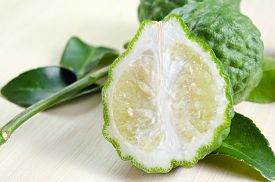









ADDICTION
Although the word 'addict' usually conjures up the image of a pale, skinny, hollow-eyed youth, slumped in the alley with a needle stuck in his arm, the more common addict is a nice old granny with a cup of tea in her hand! At least, it's now becoming clear that millions of people in Britain may be taking in such a quantity of caffeine - in tea, cola and certain medicines - that they could be classed as addicts. If they don't get their fix, and even when they do, they could become ill. Estimates as to the number of cups of coffee required to classify a person as a caffeine addict vary from five to twelve cups a day - twelve cups of coffee a day represents an intake of about a gram of caffeine. Someone consuming this much caffeine is liable to suffer symptoms that are indistinguishable from those produced by anxiety neurosis -including headaches, poor concentration, irritability, restlessness, insomnia, lethargy, nausea and tremors.
You may not realize that the craving for a nice cup of tea after a hard day's shopping is an aspect of withdrawal symptoms, or that the pick-me-up you feel after that first sip is your 'fix', but caffeine is a drug and if you stop it suddenly you will undoubtedly feel rather unwell. However, if you suffer from any of the symptoms above, and want to give it a try, remember to cut down caffeine gradually - and do persevere. Because caffeine addiction is not often recognized as the root of so many troubles, a sufferer who goes to the doctor is often prescribed tranquillizers - thus exacerbating their problems. Clearly, if you suffer from the symptoms mentioned, before you convince yourself you're heading for a nervous breakdown, it might be a good idea to cut down your intake of caffeine, by switching to decaffeinated tea or coffee or fruit and herbal teas, and see what happens then - but, please do it gradually.
Tranquillizer addiction is now, thankfully, a well-recognized problem although vast quantities of drugs are still handed out by doctors who don't know what alternatives there are. In Britain alone, during the year 1992-3, 540 million days' supply of benzodiazepines were dispensed. Drugs classed as hypnotics and anxiiolytics, prescribed for insomnia and anxiety respectively, cost the National Health Service about thirty million pounds a year.Tranquillizer dependence is said to develop after about six weeks. Aside from the horrible effects of withdrawal, which can be as difficult as those arising from alcohol dependency, sufferers report that, on looking back on their tranquillizer life, they realize they had been 'asleep' -so blocked-in and blocking-out, it was as if that period of time didn't exist.
Whole chunks of lives are essentially lost. While on the drugs, people are more detached from life than they were when they had their neurosis and so on. They don't feel numb so much as in a dream-state - watching everything as if it were a film with which they can't consciously relate or interact. They feel invisible. Clearly this is an unsatisfactory situation and if anyone reading this is caught in a trap, I suggest you get a copy of the first-ever directory of services for people who want to come off tranquillizers, which is available through the charity MIND. Although I sometimes read that it takes about four weeks to come off tranquillizers, I'd say it takes very much longer than that - months, not weeks. Because the organs seem to have an addictive-type nature, the whole body becomes dependent.
Suddenly to stop the drug can cause the organs - like the heart or liver - to go into crisis. Whatever you do, don't get too ambitious and throw the drugs in the bin and say 'that's it'. Give yourself four months, say, and reduce the amount of tranquillizer bit-by-bit over that time. Eventually you will reach the point where you are shaving a few crumbs off one pill daily. Then take the final step.
The Fragrant Mind we shall be looking at essential oil alternatives to tranquillizers, but there are other options on offer. Health food shops and high stress chemists sell a wide range of homeopathic and herbal relaxants such as valerian and passiflora tablets. In general, valerian is calming and will stop the mind racing and is also used to treat hysteria. However, homeopathy, is a very individualistic system of medicine and each patient coming to a homeopathic practitioner will be treated very differently. Aromatherapy, likewise, is individualistic, and therapists prescribe different combinations of essential oil for different people.
Tranqilizer addiction is itself so much of a trouble, one cannot sort out the root problems while on them because all they do is put another layer of problem on top of the underlying ones. Step -by-step though, one can reach the ideal situation - living a normal life and having natural help-mates around the house to deal intermittent stressful situations. Alcohol has been brewed by innumerable societies throughout time, with even the Bible referring to a miracle in which water was turned into wine! Poets, painters and writers have created masterpieces with a drink in their hand, and wine buffs have invented a new language to discuss the subtleties of their chosen tipple. Alcohol is an important aspect of social gathering - it relaxes, makes people more open and forthcoming and can't be all bad.
However, there comes a point when a threshold is crossed and instead of being 'a social drinker', an innocent partaker of one of life's little pleasures, one becomes a slave to the drug - in America it's estimated that ten million people are addicted to alcohol, while in Italy 9 per cent of the population are thought to be alcoholics. It's very difficult to convince alcoholics that: they have a problem and they need to change their habits. We all know of people whose lives have been ruined by drink, of families that have been broken up by it and the promising futures which have gone down the drain.
Some people become alcoholics because they are sociable people and the only context available in their community in which they can be sociable is the pub. and at some point their bodies become addicted. Others are driven to the bottle because they have problems which seem insurmountable and the bottle provides the only available solace. If you think you fall into the first group, then beware - you could become an alcoholic just like the millions of socialites who went that way before.
Cigarettes are very ritualistic in that some people have to light up just before they sit down to make a phone call, or at other particular times - especially when drinking, for example. Some people convince themselves they can't think unless there's a cigarette in their hand. while others carry a cigarette in their hand without being lit - like having a comfort blanket! And, of course, a cigarette often fills the big boredom void. These days there's plenty of help to get off the evil weed including nicotine patches, hypnotism, acupuncture and Vapour diffusers - all of which work for some people. If you really want to give up, try them!
- Reference: The Fragrant Mind: Valerie A Worwood
- Home
- Addiction
- JASMINE- Floral - Jasminum Officinale,J. grandiflorum, J.sambac
- History of Drugs-4
- History of Drugs
- History of Drugs-3
- The Somatid Connection
- Rosemary-Personality-Profile
- Personality In Perfumery
- Cinnamon - Personality profile
- Personality Tests
- The Water Connection
- Mind-Mood-Emotion-Quick Reference Chart - S - Un
- History of Drugs-5
- Mind-Mood-Emotion-Quick Reference Chart - Un - W
- Emotional-Healing Problems-A-B-Positive and Negative Mood Charts
- Emotional-Healing Problems-B-H-Positive and Negative Mood Charts
- How Essential Oils Work On the Brain
- Cardamom Personality Profile
- Essential Oils Used For Emotional Healing-A-M
- Lavender- Floral/Herbie
- Positive Mind, Mood & Emotion - Alertness
- Juniper personality profile
- JASMINE- Floral - Jasminum Officinale,J. grandiflorum, J.sambac
- HYACINTH - Floral - Hyacinthus Orientalis
- Emotional Healing Introduction - 2
- Emotional Healing Introduction
- Memory Enhancement, Mental Clarity and Efficiency
- How To Get Through Life In One Piece
- HELICHRYSUM (Immortelle or Italian Everlasting)
- GRAPEFRUIT - Fruitie - Citrus paradisi
- The Art Of Smelling - Which Method - Aromaprofiles
- The Art Of Smelling
- GINGER PERSONALITY PROFILE
- Geranium - Pelargonium graveolens Personality Profile
- Frankincense Resinie - Boswellia Carteri
- Quality and Purity - 2 - AromaProfiles
- Quality and Purity - AromaProfiles
- ChemoTypes - AromaProfiles
- Adaptogens - AromaProfiles


